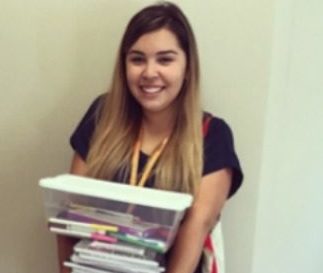I recently spent two hours making individual phone calls to the families of my summer school students. The person on the other end of the line could have been a mom, dad, sister, or grandparent, but each all had one thing in common: my student was their child. Every day this summer, their most valued treasure was sitting in my English class.
To have 30 treasures in my class is a great responsibility, one that I take with the utmost importance. The purpose of the call was to communicate the progress our students made throughout the summer, and I expected to spend between one to two minutes per call. However, as the conversations went on, I began to learn more and more about my student and the lives they lived at home. On the other line, I heard family dogs barking, little siblings running around and yelling, and the sound of the train as I spoke to a working mother.
Although students share a lot with me as their teacher, there is nothing like hearing a parent or guardian share their hopes, fears and dreams for that same student who comes into my class every single day. Conversations varied from writing scores to how to deal with the anxiety of going through a custody battle. My students are not blank canvasses. Every single day they walk into my classroom with talents, hardships, and curiosity.
During my calls, many parents shared that this was the first time a teacher had called them for something other than behavior issues. If we want to truly build relationships centered around students, we need to ensure that the communication exists with both celebrations and areas of growth. Edutopia’s “20 Tips for Developing Positive Relationships With Parents” stresses the importance of parent involvement and communicating successes. Positive phone calls home can be a game changer in establishing strong relationships with families — all of which work to support the student in the classroom and at home.
To have a parent share with me that my call “made their day” reinforces the importance of communication between teachers and parents. Parents, guardians, and I, as a teacher, need to work together to set students up for success. The true definition of being student-centered is opening up the lines of communication between all stakeholders and ensuring that the student is in an environment that sets him/her up for excellence.
Daniela Felix
Latest posts by Daniela Felix (see all)
- The Importance of Mid Year Data for Teachers, Students, and Families - December 18, 2019
- Las Familias Deben Participar en la Mejora de los Resultados de las Pruebas SBAC de California - December 10, 2019
- La Guia de los Aprendices de Inglés de California es un Recurso Útil para los Maestros - December 4, 2019
- California’s English Learner Roadmap Is a Helpful Resource for Teachers - December 2, 2019
- Families Need To Be Involved in Improving California’s SBAC Test Results - November 27, 2019

